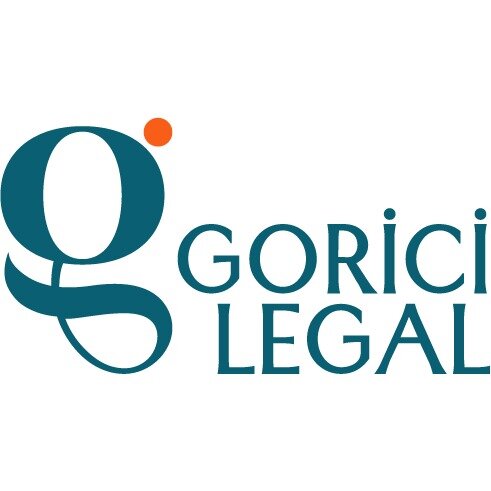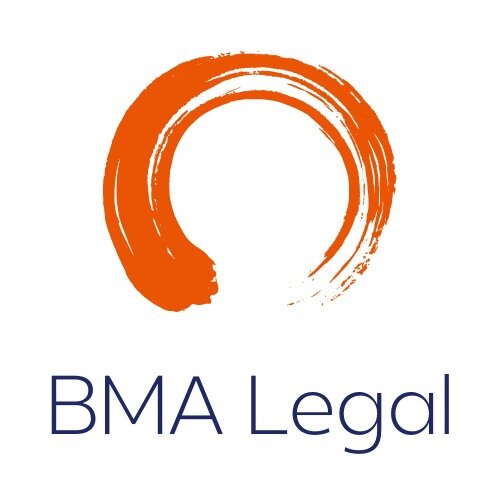Best Media, Technology and Telecoms Lawyers in Bucharest
Share your needs with us, get contacted by law firms.
Free. Takes 2 min.
List of the best lawyers in Bucharest, Romania
About Media, Technology and Telecoms Law in Bucharest, Romania:
Media, Technology, and Telecoms Law in Bucharest, Romania governs the legal aspects related to media content, technology development, and telecommunications services in the country. These laws regulate activities such as broadcasting, online content distribution, intellectual property, data protection, and telecommunications infrastructure. It is crucial for businesses and individuals operating in these sectors to comply with the relevant legal requirements to avoid any legal issues.
Why You May Need a Lawyer:
You may need a lawyer specializing in Media, Technology, and Telecoms Law in Bucharest, Romania for various reasons, such as drafting and negotiating contracts related to media content distribution, protecting intellectual property rights, resolving disputes over technology patents, ensuring compliance with data protection regulations, and representing you in court in case of legal disputes related to media, technology, or telecoms activities.
Local Laws Overview:
The key aspects of local laws relevant to Media, Technology, and Telecoms in Bucharest, Romania include regulations on intellectual property rights, data protection laws, telecommunications regulations, competition law, advertising regulations, and consumer protection laws. It is essential to have a clear understanding of these laws to operate in these sectors legally and efficiently.
Frequently Asked Questions:
1. What are the main intellectual property rights relevant to Media, Technology, and Telecoms in Romania?
In Romania, intellectual property rights such as copyright, trademarks, patents, and trade secrets are crucial for protecting media content, technology innovations, and telecoms services. It is essential to register these rights to prevent infringement and protect your creations.
2. How are data protection laws applied to media, technology, and telecoms companies in Romania?
Data protection laws in Romania require companies in these sectors to comply with specific rules regarding the collection, storage, and processing of personal data. These laws aim to protect individuals' privacy and ensure that their data is handled appropriately.
3. What are the key telecommunications regulations in Romania that companies need to comply with?
Telecommunications regulations in Romania govern the provision of telecom services, including licensing requirements, network security rules, and spectrum allocation. Companies operating in the telecom sector must adhere to these regulations to operate legally in the country.
4. How can a lawyer help with resolving disputes related to media, technology, or telecoms activities?
A lawyer specializing in Media, Technology, and Telecoms Law can assist in resolving disputes through negotiation, mediation, or litigation, depending on the nature of the issue. They can also provide legal advice on how to avoid disputes and comply with applicable laws.
5. What are the consequences of violating advertising regulations in Romania?
Violating advertising regulations in Romania can lead to fines, legal penalties, and damage to a company's reputation. It is crucial to ensure that advertising campaigns comply with local laws to avoid such consequences.
6. How can a lawyer help with drafting and negotiating contracts in the media, technology, and telecoms sectors?
A lawyer with expertise in Media, Technology, and Telecoms Law can assist in drafting and negotiating contracts that protect your interests and ensure compliance with relevant laws. They can help you understand the terms of the contract and negotiate favorable terms on your behalf.
7. What are the key consumer protection laws that companies in the media, technology, and telecoms sectors need to be aware of?
Consumer protection laws in Romania aim to protect consumers from unfair practices and ensure that companies provide accurate information about their products and services. Companies in these sectors must comply with these laws to avoid legal issues.
8. How can a lawyer help with protecting intellectual property rights in Romania?
A lawyer specializing in intellectual property law can assist in registering and enforcing your intellectual property rights, such as copyrights, trademarks, and patents. They can also help you take legal action against infringers and protect your creations from unauthorized use.
9. What are the main challenges faced by companies in the media, technology, and telecoms sectors in Romania?
Companies in these sectors often face challenges such as rapid technological advancements, changing regulatory landscape, competition from international players, and cybersecurity threats. It is essential to stay informed about these challenges and seek legal advice to address them effectively.
10. How can I find a reputable lawyer specializing in Media, Technology, and Telecoms Law in Bucharest, Romania?
You can find a reputable lawyer by asking for recommendations from colleagues, researching online legal directories, or contacting local bar associations for referrals. It is essential to choose a lawyer with experience in the specific legal issues you are facing in the media, technology, or telecoms sectors.
Additional Resources:
For additional resources related to Media, Technology, and Telecoms Law in Romania, you can visit the following websites:
- The National Authority for Management and Regulation in Communications of Romania (ANCOM)
- The Romanian Copyright Office (ORDA)
- The National Authority for Consumer Protection in Romania (ANPC)
Next Steps:
If you need legal assistance in Media, Technology, and Telecoms Law in Bucharest, Romania, the next step is to schedule a consultation with a lawyer specializing in this field. During the consultation, you can discuss your legal issues, explore your options, and receive guidance on how to proceed. It is important to act promptly and seek legal advice to protect your rights and interests in these sectors.
Lawzana helps you find the best lawyers and law firms in Bucharest through a curated and pre-screened list of qualified legal professionals. Our platform offers rankings and detailed profiles of attorneys and law firms, allowing you to compare based on practice areas, including Media, Technology and Telecoms, experience, and client feedback.
Each profile includes a description of the firm's areas of practice, client reviews, team members and partners, year of establishment, spoken languages, office locations, contact information, social media presence, and any published articles or resources. Most firms on our platform speak English and are experienced in both local and international legal matters.
Get a quote from top-rated law firms in Bucharest, Romania — quickly, securely, and without unnecessary hassle.
Disclaimer:
The information provided on this page is for general informational purposes only and does not constitute legal advice. While we strive to ensure the accuracy and relevance of the content, legal information may change over time, and interpretations of the law can vary. You should always consult with a qualified legal professional for advice specific to your situation.
We disclaim all liability for actions taken or not taken based on the content of this page. If you believe any information is incorrect or outdated, please contact us, and we will review and update it where appropriate.
Browse media, technology and telecoms law firms by service in Bucharest, Romania
Bucharest, Romania Attorneys in related practice areas.









